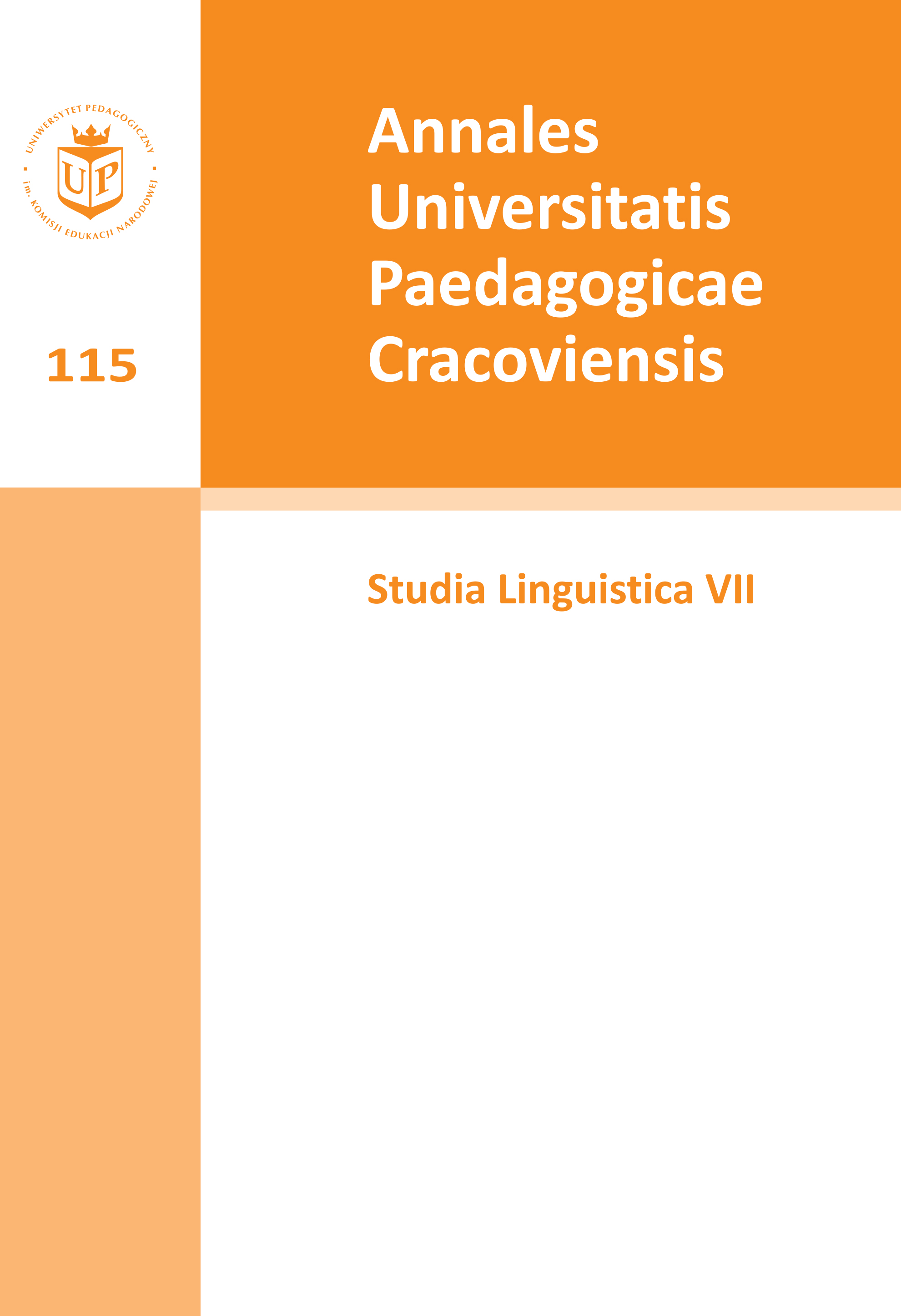Czy globalizacja języka mediów jest nieunikniona? Analiza telewizyjnych serwisów informacyjnych różnych krajów
Main Article Content
Abstrakt
Globalization is becoming a fact. The development of transport and communication means that people scattered all over the world now adapt each others’ customs, clothes, value systems and even vocabulary. The television plays a special role in the globalization process. Constant rush imposes uniformization of technologies and activities. The only thing which still allows to differentiate various programmes is the language. But to what extent? A TV news programme has to convey as much information as possible, in the shortest possible time and in a way which will make the news comprehensible and easy to remember. This is extremely difficult, especially in view of the lowering intellectual level of the viewers. It is not surprising, therefore, that almost all components of a news programme serve the purpose of carrying information. A number of messages are transferred to the viewers by means of non-verbal communication: setting, clothes, gestures, announcer’s facial expressions, graphic arrangement, screenplay, hierarchy of information, camerawork, editing technique, musical background and the choice of a journalistic genre. These subcodes constantly interact with the linguistic subcode. However, their combination is not a simple sum, but a combined result of their impact. The present article begins with an analysis of the verbal subcode (written and spoken) conducted on the corpus of English, Polish, French and Italian news programmes. Then, the interaction between the verbal and the visual subcodes in the corpus is examined. Already at the preliminary stage it becomes clear that globalizing and universalizing ten- dencies are present both in the verbal and non-verbal components of the news.
Downloads
Article Details
Autor, zgłaszając tekst do redakcji czasopisma „Annales Universitatis Paedagogicae Cracoviensis. Studia Linguistica”, zaświadcza, iż jest on rezultatem wyłącznie jego własnej twórczości, że treść artykułu nie była dotychczas publikowana oraz że utwór nie narusza w żadnym stopniu praw autorskich ani praw pokrewnych innych osób, jak również innych praw osób trzecich, a także, że niczyje prawa do utworu (lub jego jakiejkolwiek części) nie zostały pominięte. Po podpisaniu umowy prawa majątkowe do opublikowanych materiałów zostają przeniesione na Wydawnictwo Naukowe Uniwersytetu Komisji Edukacji Narodowej w Krakowie.
Rocznik „Annales Universitatis Paedagogicae Cracoviensis. Studia Linguistica” to czasopismo o otwartym dostępie, a cała jego zawartość jest udostępniana bezpłatnie dla użytkowników i instytucji na zasadach licencji Creative Commons CC-BY-NC-ND 4.0 (uznanie autorstwa, użycie niekomercyjne, bez utworów zależnych). Na podstawie tej licencji autorzy zgadzają się, że ich prace mogą być zgodnie z prawem ponownie wykorzystywane do jakichkolwiek celów, za wyjątkiem celów komercyjnych, bez konieczności uzyskania uprzedniej zgody ze strony autora lub wydawcy. Każdy może prace te czytać, pobierać, kopiować, drukować, rozpowszechniać oraz przetwarzać, pod warunkiem poprawnego oznaczenia autorstwa oraz oryginalnego miejsca publikacji. Publikowanych tekstów nie można wykorzystywać do tworzenia utworów zależnych (np. do tłumaczenia ich i publikowania w innym języku bez zgody wydawcy). Jest to zgodne z definicją otwartego dostępu BOAI (Budapest Open Access Initiative) „Studia Linguistica”nie pobiera opłat za składanie artykułów ani ich przetwarzanie.
Autor, przesyłając artykuł do redakcji „Studia Linguistica”, bezwględnie zgadza się z poniższymi punktami:
-
Oświadczam, że jestem Autorem lub Współautorem nadesłanego tekstu. Przesłany tekst nie był nigdzie publikowany, jest całkowicie oryginalny i nie narusza w żadnym stopniu praw autorskich ani praw pokrewnych innych osób, jak również innych praw osób trzecich, a także, że niczyje prawa do utworu nie zostały pominięte.
-
Oświadczam, że nadesłany tekst nie został złożony do recenzji lub/i publikacji w innym czasopiśmie.
-
Przyjmuję do wiadomości, że Autor ponosi pełną odpowiedzialność za każdy przypadek plagiatu, niezależnie od tego, czy został on wykryty podczas procesu recenzji, czy po publikacji w „Studia Linguistica”.
-
Oświadczam, że ponoszę pełną odpowiedzialność finansową i prawną za wszelkie roszczenia związane z utworem.
-
Potwierdzam uznanie wszystkich źródeł danych wykorzystanych i cytowanych w badaniach.
-
Potwierdzam, że artykuł został wykonany z należytą starannością zgodnie ze standardami edytorskimi „Studia Linguistica”.
